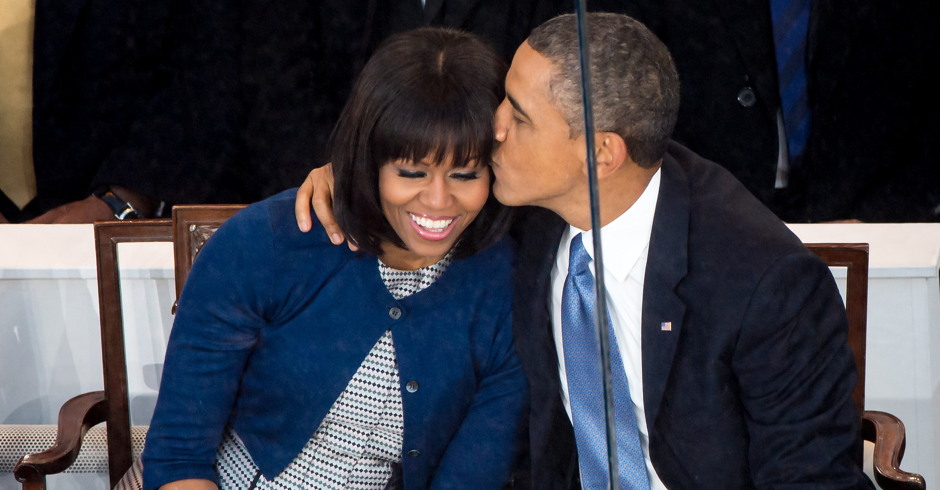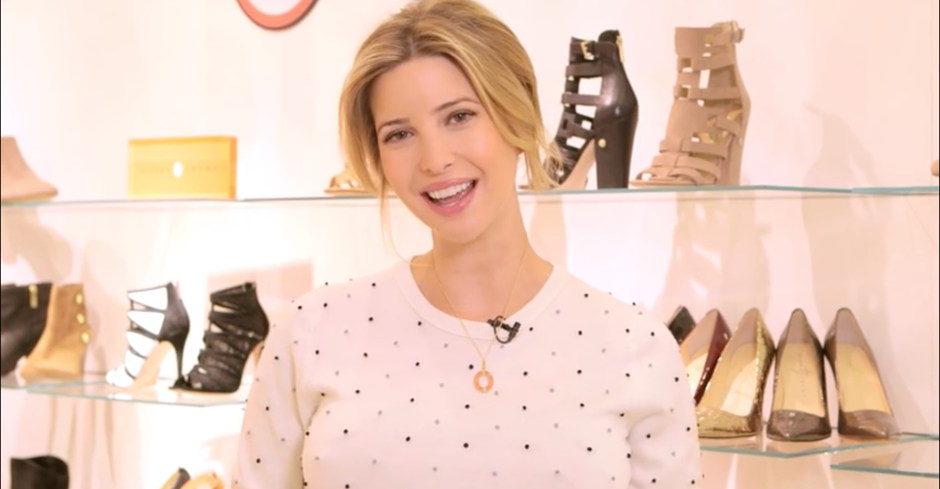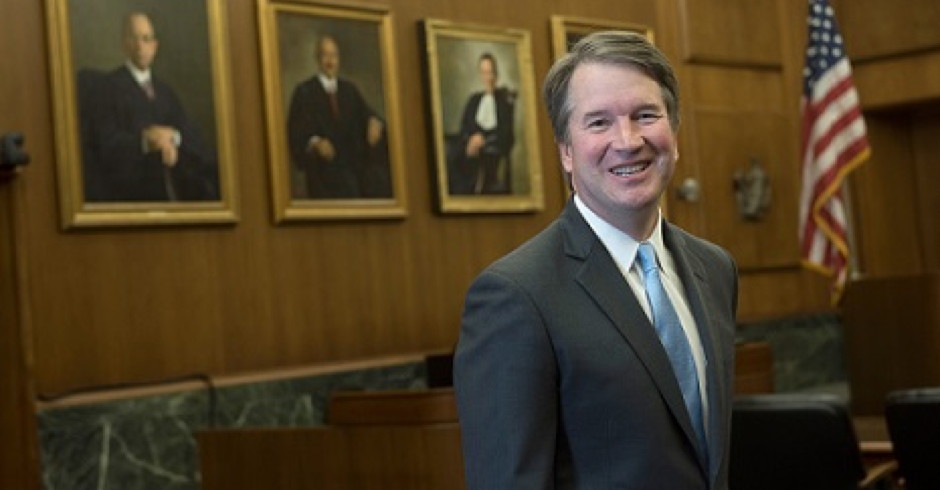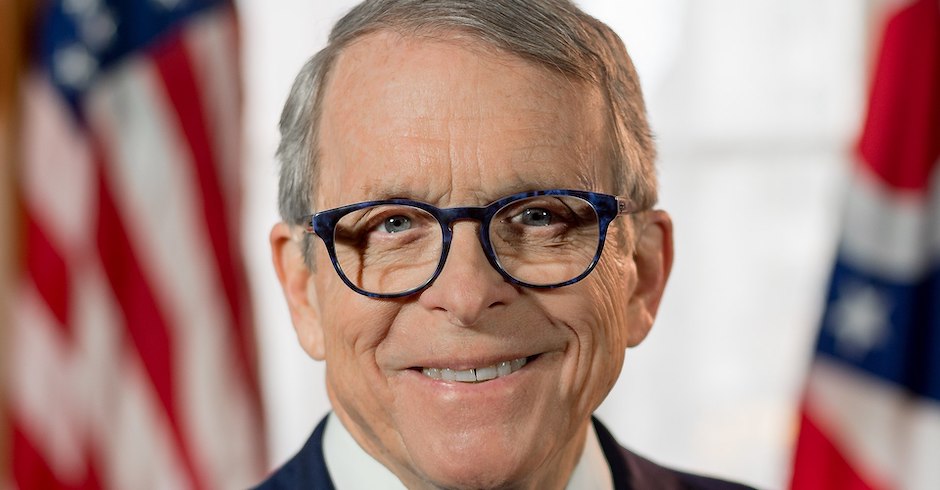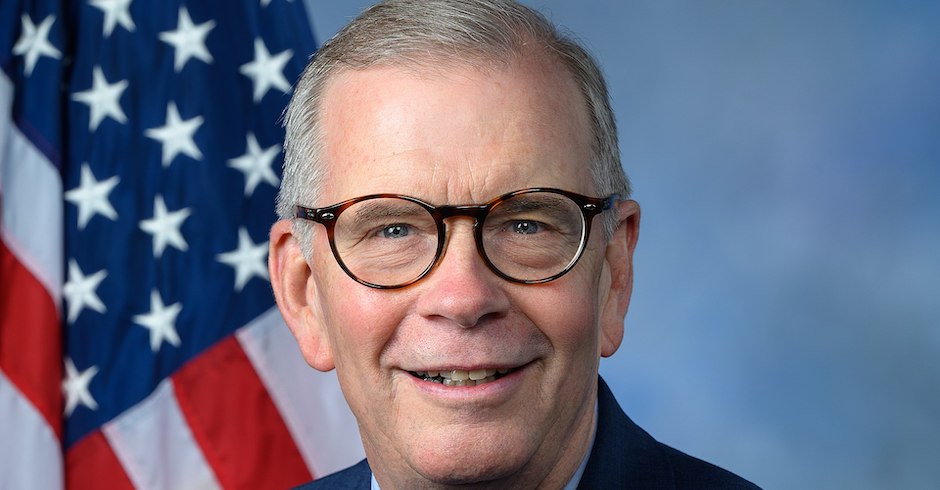LGBT
Was a Man Sentenced to Death for Being Gay?
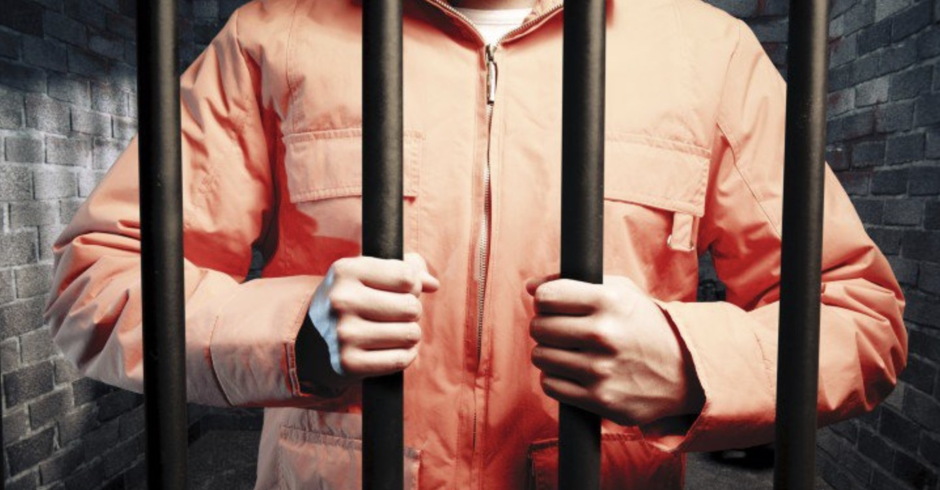
Six civil rights organizations, including the American Civil Liberties Union, American Civil Liberties Union of South Dakota, Lambda Legal, GLBTQ Legal Advocates & Defenders, National Center for Lesbian Rights, and National LGBT Bar Association, filed an amici brief Thursday urging the Eighth Circuit Court of Appeals to hear the appeal of Charles Rhines, a gay man on death row in South Dakota.
According to the filing, new evidence “suggests that at least some members of the jury accepted the notion that life in prison without parole would be fun for a gay person – so much so that they felt it was necessary to impose the death penalty instead. In other words, significant evidence suggests that the jury may have sentenced Mr. Rhines to death based not on the facts of his case, but because he is gay.”
“Mr. Rhines’s case represents one of the most extreme forms anti-LGBT bias can take. Evidence suggests that he has been on death row for the past 25 years because he is a gay man. The constitutional right to a fair trial must include the right to establish whether a verdict or sentence was imposed due to jury bias,” said Lambda Legal Fair Courts Project Attorney Ethan Rice. “Lambda Legal is proud to work with the ACLU, the ACLU of South Dakota, GLBTQ Legal Advocates & Defenders, National Center for Lesbian Rights, and the National LGBT Bar Association to provide important information to the Eighth Circuit on the history of bias against LGBT people and how that bias impacts LGBT rights in the criminal legal system.”
The amicus brief can be viewed here: https://tinyurl.com/y8eslggc.
Mr. Rhines’s Application for Certificate of Appealability can be viewed at https://tinyurl.com/y778msud and its exhibits at https://tinyurl.com/y8bz8jor.
During jury deliberations, the jury sent a note to the judge that indicated that Mr. Rhines’s status as a gay man had become a focal point for deliberations. The note asked whether, if sentenced to life without parole, Mr. Rhines would “be allowed to mix with the general inmate population,” be able to “brag about his crime to other inmates, especially new and/or young men,” enjoy “conjugal visits” and asked other questions about Mr. Rhines’s access to other men while in prison. (Application at p. 6.)
The new evidence comes in the form of three statements from jurors who served at Mr. Rhines’s capital trial and sentencing. One juror stated that the jury “knew that [Mr. Rhines] was a homosexual and thought that he shouldn’t be able to spend his life with men in prison.” Another juror recalled a juror commenting that “if he’s gay we’d be sending him where he wants to go if we voted for [life without parole].” A third juror confirmed that “[t]here was lots of discussion of homosexuality. There was a lot of disgust.” (Application at p. 8.) (See also Amici brief at p. 1). The new evidence confirms what the jury’s note strongly indicated at the time of Mr. Rhines’s sentencing: anti-gay bias played a role in some jurors’ decisions to impose the death penalty on Mr. Rhines.
The brief of the amici documents America’s long and painful history of discrimination against lesbian, gay, and bisexual people, which persisted at the time of trial and continues in the present day. The amici wrote to the court: “Well into the twentieth century, gay people were ‘prohibited from most government employment, barred from military service, excluded under immigration laws, targeted by police, and burdened in their rights to associate.’” (Amici Brief at p. 5 quoting Obergefell v. Hodges)
In 2017, in Peña-Rodriguez v. Colorado, the U.S. Supreme Court held that states must consider evidence that jurors relied on racial stereotypes or animus to convict a defendant in a non-capital case. As Ria Tabacco Mar has previously discussed, “juror deliberations are considered sacrosanct, but last year the Supreme Court carved out an important exception for cases of racial bias in the jury room.”
Attorneys for Mr. Rhines argue that since the principles underlying Peña-Rodriguez apply to anti-gay prejudice, the Eighth Circuit should allow Mr. Rhines the opportunity to present evidence that anti-gay bias was a factor in some jurors’ decisions to sentence him to death. The need for review is especially compelling because the anti-gay bias in Mr. Rhines’s case may have made the difference between life and death.
Charles Rhines Case Overview
Charles Rhines is a gay man on death row in South Dakota. New evidence shows that some of the jurors who sentenced him to death “knew that he was a homosexual and thought he shouldn’t be able to spend his life with men in prison” and thought that “if he’s gay we’d be sending him where he wants to go if we voted for [life in prison].” The jury’s anti-gay bias deprived him of his rights to a fair trial and due process under the Sixth and Fourteenth Amendments.
Before trial, Mr. Rhines’s attorneys asked prospective jurors if they had any anti-gay bias that would prevent them from giving Mr. Rhines a fair trial. The jurors selected to hear his case said they could be fair and free of prejudice. This turned out not to be true.
At trial, the jury heard through witnesses presented by the state that Mr. Rhines was gay and had relationships with other men. They were asked to choose between life in prison without parole and the death penalty for a murder committed when an employee surprised Mr. Rhines in the course of a commercial burglary. During their deliberations, the jury sent a note to the judge indicating that deliberations had become infected with anti-gay stereotypes and prejudices. (Application at p. 6.)
The judge did not address these questions and failed to head off the anti-gay bias that the questions revealed. The same day, about eight hours later, the jury voted to sentence Mr. Rhines to death. (Application at pp. 5-6.)
New evidence confirms that some of the jurors who voted to impose the death penalty on Mr. Rhines did so because they thought the alternative – a life sentence in a men’s prison – was something he would enjoy as a gay man. Three jurors have made statements indicating that anti-gay prejudices played a significant role in the jury’s decision-making.(Amici brief at p. 1.)
As Chief Justice Roberts has explained, the core premise of our criminal justice system is that “[o]ur law punishes people for what they do, not who they are.” (Buck v. Davis) Bias based on a characteristic that cannot be changed, such as race or sexual orientation, goes against this foundational principle. Allowing bias to play any role in sentencing is especially alarming when the bias may have made the difference between life and death.
After a verdict and sentencing, the courts do not usually inquire into jury deliberations. However, in 2017, the U.S. Supreme Court recognized an exception to this rule and directed states to consider evidence that jurors relied on racial stereotypes or prejudice in convicting a defendant. (Peña-Rodriguez v. Colorado)
In Peña-Rodriguez, after the jury voted to convict a person in a non-death penalty case, two jurors said that another juror believed that the defendant was guilty of unlawful sexual contact and harassment “because he’s Mexican and Mexican men take whatever they want.” (Amici brief at pp. 2-3.) The Court found that evidence of anti-Mexican bias “cast serious doubt on the fairness and impartiality of the jury’s deliberations and resulting verdict” and set the verdict aside. (Amici brief at p. 3, quoting Peña-Rodriguez.)
On July 26, 2018, Mr. Rhines filed an Application for Certificate of Appealability with the U.S. Court of Appeals for the Eighth Circuit asserting that Peña-Rodriguez v. Colorado applies to his evidence that at least one juror relied on anti-gay stereotypes and animus to sentence him to death. On August 2, 2018, six civil rights groups with a vital interest in eradicating anti-gay bias from America’s legal system filed an amici brief with the Eighth Circuit urging the court to afford Mr. Rhines the opportunity to establish whether bias based on his sexual orientation was a motivation for some jurors in sentencing him to death.
As the amici document explains, the jury’s decision to allow Mr. Rhines to live or die occurred in the context of the history of discrimination against lesbian, gay, and bisexual people in the United States.(Amici brief at pp. 7- 9.) While many of the laws that allowed or required discrimination against lesbian, gay, and bisexual people were repealed or found unconstitutional after Mr. Rhines’s trial, recent years have seen renewed efforts to ban same-sex couples from adopting children, allow discrimination against them by public and private actors, and otherwise maintain their inferior status under the law. (Amici brief at p. 5.)
Lesbian, gay, and bisexual people continue to experience negative consequences because of their sexual orientation. Despite significant progress, eliminating bias based on sexual orientation on the part of the government and private individuals continues to be difficult. For example, the current Attorney General of the United States has argued that employers should be able to fire lesbian, gay, and bisexual people because of their sexuality under federal law and that businesses open to the public should be able to discriminate against same-sex couples. (Amici brief at pp. 11-12.)
Today, the federal government and 28 states have no laws that expressly prohibit discrimination based on sexual orientation, leaving lesbian, gay, and bisexual people at risk for discrimination in jobs, housing, education, credit, healthcare, jury service, retail stores, and other aspects of public life. (Amici brief at p. 12.) In 2017, 46 percent of LGBTQ employees reported remaining closeted at work. (Amici brief at p. 13.) 2016 was the deadliest year on record for hate crimes against this community with more than 1,000 incidents of hate violence reported. (Amici brief at p. 15.)
Historic and present-day anti-gay bias infects the justice system, just as it does other aspects of life. In a 2008 study, a majority of police chiefs said they believed that being gay constitutes “moral turpitude” and a “perversion.” This continuing bias helps explain why gay men are still targeted for lewdness offenses and why young lesbian, gay, and bisexual people are more likely to get stopped by police or arrested than their heterosexual peers. (Amici brief at pp. 14-15.)
Research shows that discriminatory attitudes against lesbians, gays, and bisexual people negatively affect their experiences in the civil and criminal courts as jurors, litigants, court employees, and other participants. For example, in a 2001 study of the California court system, more than a third of lesbian, gay, and bisexual court users “felt threatened in the court setting because of their sexual orientation.” (Amici brief at p. 17.) (See also Application at p. 12.)
Of jurors who participated in mock trials between 2002 and 2008, a jury research firm found that 45 percent believed that being gay “is not an acceptable lifestyle.” (Amici brief at p. 19.) These persistent attitudes open the door to a gay defendant who is convicted of murder to receive the death penalty, instead of a sentence of life without parole, because of his sexual orientation, rather than the nature of the crime.
Punishing people based on who they are is fundamentally “inconsistent with our commitment to the equal dignity of all persons.” (Amici brief at p. 4, quoting Peña-Rodriguez.) The court should accept Mr. Rhines’s case to allow him to show whether anti-gay prejudice factored into the jury’s decision to sentence him to death.
Enjoy this piece?
… then let us make a small request. The New Civil Rights Movement depends on readers like you to meet our ongoing expenses and continue producing quality progressive journalism. Three Silicon Valley giants consume 70 percent of all online advertising dollars, so we need your help to continue doing what we do.
NCRM is independent. You won’t find mainstream media bias here. From unflinching coverage of religious extremism, to spotlighting efforts to roll back our rights, NCRM continues to speak truth to power. America needs independent voices like NCRM to be sure no one is forgotten.
Every reader contribution, whatever the amount, makes a tremendous difference. Help ensure NCRM remains independent long into the future. Support progressive journalism with a one-time contribution to NCRM, or click here to become a subscriber. Thank you. Click here to donate by check.
 |



